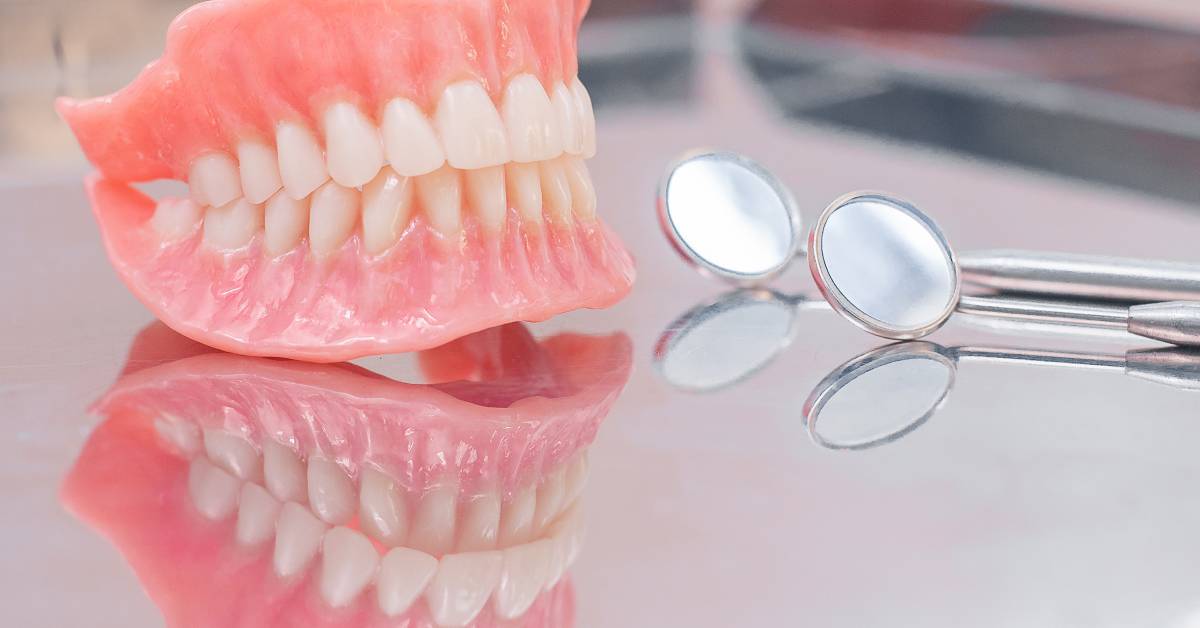
When people get dentures, they often recover the normalcy and confidence they lost after losing their teeth. However, it is possible for them to gain a set of new challenges as well. Understanding these common issues and knowing how to address them can make life with dentures much more comfortable and enjoyable. Read on to learn about eight common denture problems and how to solve them so that you can enhance your experience.
Difficulty Talking
One hurdle many new denture wearers encounter is difficulty in speaking clearly. It’s not uncommon to experience slurred speech or a lisp as your mouth adjusts to its new occupant. This issue can be frustrating, especially for those used to communicating fluently and confidently.
The key to overcoming this challenge is practice. Reading aloud and talking regularly can expedite the adaptation process. Focusing on difficult words or phrases and repeating them can help retrain your tongue and muscles to work with your dentures.
Additionally, speaking slowly gives your mouth more time to adjust to the new sensations, reducing speech impediments. If the problem persists, consulting with your dentist might be necessary. They can assess whether your dentures fit properly and see if they need to make adjustments.
Challenges While Eating
Another common denture problem is having trouble eating, especially certain foods. Those new to dentures might find themselves struggling with sticky or hard foods, which can be disheartening.
However, adjusting your eating habits is crucial. Try eating soft foods at first. You may even have to cut bites into small pieces. Using the right and left sides of your mouth at the same time can also help maintain balance and prevent your dentures from tipping.
It’s important to be patient with yourself during this adjustment period. Over time, most denture wearers find that they can return to a normal diet and enjoy a variety of foods without discomfort.
Mouth Discomfort

Experiencing discomfort or soreness in the mouth is a typical issue for those wearing dentures. You may find that the dentures cause irritation of the gums and other soft tissues in the early stages of wearing them. Although these feelings should go away over time, pain relievers can help you in the meantime.
Try rinsing with salt water as well to soothe irritated areas. If you find they do not go away, visit your dentist to ensure that the dentures fit. It is essential to promptly address prolonged discomfort so that you can prevent more serious complications.
Dentures Moving in the Mouth
When you eat food, your dentures may slip out of place. This problem can also happen when you laugh or cough. Your mouth’s muscles and cheeks need to adapt to keeping the dentures in place. Try biting down and swallowing to see if that helps in the moment.
You can also use high-quality adhesives to keep your dentures in place or have your dentist check them to see they need to make any changes. These proactive approaches help you maintain the optimal fit and function of your dentures.
More Saliva Than Normal

After getting denture dental services, you may find that your mouth produces excess saliva. Although this can be bothersome, it is also a natural response when you introduce new objects, such as dentures, to your mouth.
Fortunately, this issue does not require the intervention of a dentist since your body will resolve it over time as it adjusts to the dentures. In the meantime, swallowing more frequently can help manage excess saliva. Your salivary glands should eventually adapt to the new normal, and the excess saliva will likely decrease.
Poor Breath
Unpleasant breath can be embarrassing, but it is a common side effect of wearing dentures. The reason for this is usually due to food particles and bacteria accumulating on and around the dentures. Maintaining impeccable oral hygiene is the most effective way to combat this issue.
Use a soft brush and a cleaner specifically for dentures to clean them every day. Additionally, cleaning your mouth, including your gums, tongue, and any remaining natural teeth, is crucial for preventing bad breath.
Soaking your dentures overnight in a suitable cleaning solution can also ensure cleanliness. Being diligent with your cleaning routine will have a positive effect on your breath and mouth.
A Prolonged Cleaning Time
After you get dentures, you may notice that cleaning them takes longer than you expected. You can shorten this by focusing on being more efficient as you clean them.
However, you may also find that the teeth in your dentures experience discolorations. In this case, you should try washing them using a mix of water and vinegar.
This habit will help improve the look of your smile—as well as the odor of your mouth. You’ll protect your investment in your dentures while promoting overall health. Should you have questions or need advice on choosing the best cleaning products, your dentist can offer personalized recommendations.
Fitting Poorly
A common complaint among denture wearers is the feeling that their dentures do not fit as securely as expected. Unfortunately, this can result in many problems, including wearers experiencing pain while speaking or eating. These problems can significantly impact day-to-day activities and diminish overall quality of life.
One of the most common causes of poor-fitting dentures is the change your jawbone experiences over time. It’s important to remember that achieving a perfect fit is sometimes an ongoing process, requiring patience and regular professional attention.
Addressing poorly fitting dentures starts with visiting your dentist. Depending on the situation, they might suggest a reline, rebase, or even the crafting of new dentures to ensure a more stable and secure fit. Regular appointments are crucial for maintaining the integrity of your dentures, as they allow for timely adjustments that can preempt discomfort and other complications.
Understanding and addressing these common problems can help improve your experiences with your dentures and save you a lot of discomfort. With the right approach and dedication to self-care, living with dentures can be a seamless and comfortable part of your daily routine.
Visiting Pinnacle Dental Associates can also help you with your oral care. We’re here to provide permanent or removable dentures and fix any problems you are experiencing with your current ones. Let us help you improve your oral health and get more out of life.
